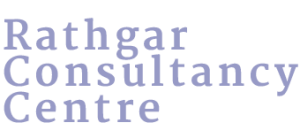Here at Rathgar Consultancy Centre we have a dedicated team of therapists who treat the full range of food disorders using a specific Cognitive Behaviour Programme for food disorders, known as CBT-E (Enhanced). CBT E contests that the different food disorders – anorexia, bulimia, binge-eating and eating disorders NOS – are remarkably similar in their underlying core functioning/psychopathology, and can therefore all be treated using the same programme, with just slight adaptions in its implementation. CBT E is an evidence based approach and many trials show that CBE works.
Food disorders are driven by the over evaluation of shape and weight, in that the individual’s self worth is based largely, or even exclusively, in terms of shape and weight and their ability to control them, it is therefore cognitive in nature. Constant weighing, and mirror checking perpetuates this over evaluation as does other common behaviours such as the avoidance of food or certain foodstuffs, binges, extreme weight control behaviour, such as recurrent self induced vomiting, regular laxative misuse, over exercising. Common to all food disorders excepting anorexia, is the practice of binge eating followed by a form of purging. Most individuals find binge eating an aversive and distressing experience, which eventually leads them to seek help. Especially as in a large number of cases the binge eating and consequent purging, result in very little, if any weight variance on a sustained basis.
In the treatment of food disorders, what led to the development of the food disorder is irrelevant and the first task is to identify the behaviours and mechanisms that are maintaining the distorted thinking behind the psychopathology, known as the “formulation”. Unlike other forms of CBT which give significant import to faulty thinking, CBT E focuses primarily on helping individuals change the way that they behave, and then analyse the effects and implications of those changes. Behaviour change is supported through psycho-education, challenging the individual’s over-evaluation of shape and weight and slowly implementing steps to regularise food intake such as a regular eating programme.
Except in the case of more complex issues being present, treatment should be complete after twenty sessions, with bi-weekly sessions being undertaken initially.
For the individual suffering from a food disorder the prospect of treatment can be very frightening as the fear of putting on weight is paralysing. However most clients once they seek help find the treatment programme easier than expected and is specifically designed to take into account those fears. Therefore in the initial sages, when introducing the three regular meals a day plan, the content of these meals is irrelevant no matter how big or small the portions. Treatment is far easier than predicted.
So try and disregard your fear and phone for help on 087 436 0032 we can help.
Christina Ramminger, Orla McHugh, Julia Brent and Sue Swan work on the food disorder team.
